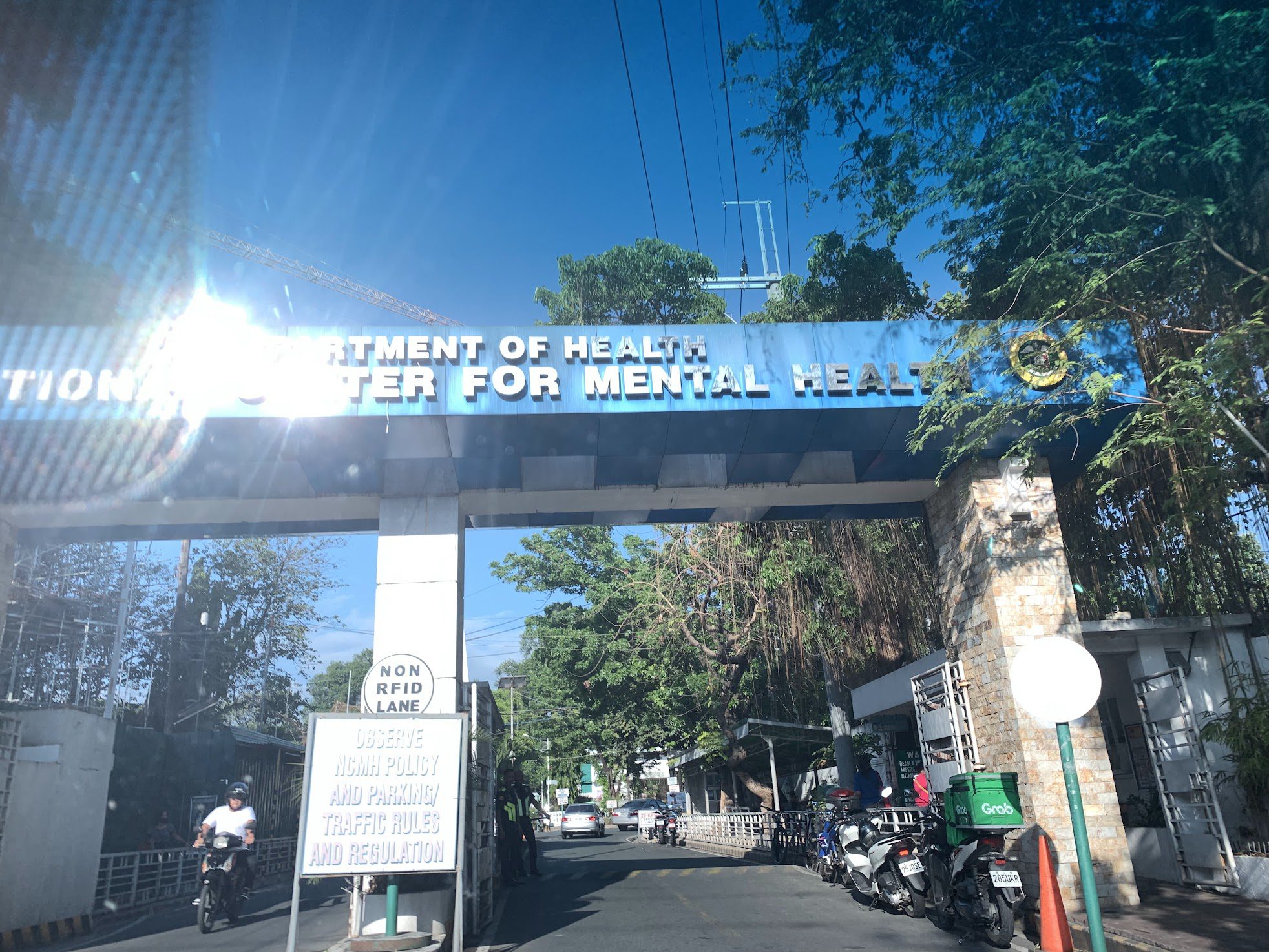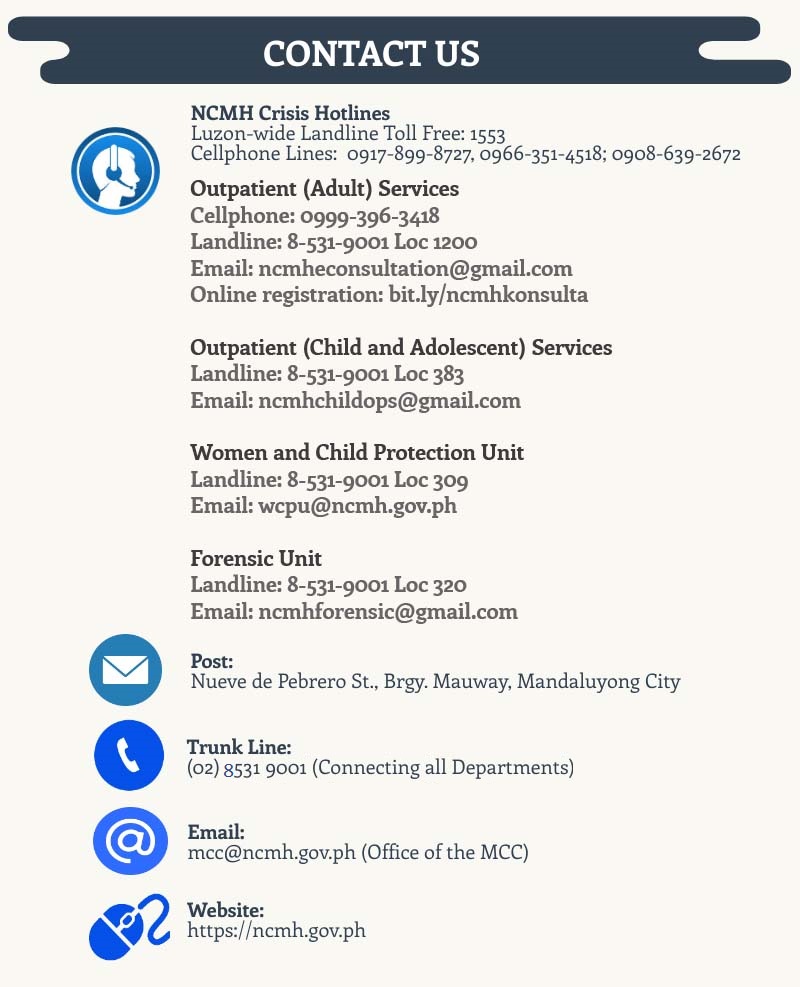Inside the National Center for Mental Health: How to Get Free Mental Help in the Philippines

Mental Health in the Philippines
In the Philippines, navigating mental healthcare, particularly for bipolar disorder, is a complex journey. My son’s diagnosis in 2016 opened my eyes to the systemic challenges Filipinos face, not just regarding access to proper services but also the stigma surrounding mental illness. This story goes beyond our personal experience; it reflects the broader issues within the National Center for Mental Health and the healthcare system at large. While mental health is a pressing concern, it’s often overshadowed by other issues. The lack of resources, insufficient public awareness, and cultural misunderstandings that equate mental illness with personal failure or weak faith create a significant barrier for Filipinos seeking help.
The Role of Stigma and Cultural Barriers
The Philippines faces a significant challenge in addressing mental health issues due to the pervasiveness of stigma. This stigma manifests in various ways, including:
- Social shame: Mental health problems are often viewed as a source of shame and embarrassment, leading individuals to conceal their struggles and avoid seeking help.
- Personal failure: Individuals with mental health conditions may internalize societal stigma, blaming themselves for their condition and feeling like a failure.
- Discouragement of open discussions: The shame associated with mental illness discourages open and honest conversations about mental health, perpetuating the stigma and hindering progress.
- Delayed treatment seeking: Due to the fear of judgment and discrimination, individuals may delay seeking treatment, worsening their condition and reducing the effectiveness of interventions.
- Lack of knowledge: Widespread misinformation and lack of awareness about mental health contribute to negative attitudes and discriminatory behavior towards individuals with mental disorders.
This complex interplay of factors creates a significant barrier to accessing mental healthcare.
Challenges in Accessing Mental Health Services
While the Philippines has made strides in recognizing the importance of mental health, accessing adequate services remains a significant challenge. This section will look into the key obstacles hindering Filipinos’ access to mental healthcare:
1. Scarcity of Mental Health Professionals:
The Philippines grapples with a severe shortage of mental health professionals. The ratio of psychiatrists to the population stands at a dismal 1:100,000, falling far below the World Health Organization’s recommended ratio of 1:10,000. This scarcity is further compounded by the uneven distribution of professionals, with the majority concentrated in urban centers like Metro Manila, leaving vast rural regions underserved.
2. Inadequate Infrastructure and Resources:
Mental health facilities in the Philippines often struggle with underfunding and overcrowding. This lack of resources can lead to long waiting times, inadequate care, and an overall negative experience for individuals seeking help. The shortage of essential equipment and medications further exacerbates the situation, hindering the provision of effective treatment.
3. Financial Constraints:
The cost of mental health care can be a significant deterrent for many Filipinos. Private consultations with psychiatrists and psychologists can be expensive, while government-funded facilities often have limited capacity and long waiting lists. This financial burden disproportionately affects low-income individuals and families, further widening the access gap.
4. Stigma and Discrimination:
As discussed in the previous section, stigma surrounding mental health remains a pervasive issue in the Philippines. This stigma can discourage individuals from seeking help due to fear of judgment, discrimination, and social isolation. The lack of understanding and awareness about mental health conditions further contributes to this barrier.
5. Lack of Awareness and Education:
Limited public awareness and education about mental health contribute to the challenges of accessing services. Many Filipinos lack basic knowledge about mental health conditions, their symptoms, and available treatment options. This lack of awareness can lead to delayed help-seeking, misdiagnosis, and ineffective treatment.
Addressing these multifaceted obstacles requires a comprehensive approach that encompasses:
- Investing in training and education: Increasing the number of qualified mental health professionals through scholarships, training programs, and incentives to attract professionals to underserved areas.
- Expanding mental health infrastructure: Building and adequately equipping mental health facilities in rural and underserved regions to ensure equitable access to care.
- Enhancing affordability: Implementing strategies to make mental health care more affordable, such as subsidized services, insurance coverage, and community-based support programs.
- Combating stigma and discrimination: Launching public awareness campaigns to educate the public about mental health, promote understanding, and challenge negative attitudes.
- Empowering communities: Providing mental health literacy training to community leaders, teachers, and healthcare workers to equip them with the knowledge and skills to identify and support individuals with mental health needs.
By addressing these challenges and implementing effective strategies, the Philippines can create a more accessible and equitable mental health care system, ensuring that all Filipinos have the opportunity to receive the care they need to thrive.
Experiences at the National Center for Mental Health (NCMH) in Mandaluyong
Navigating the challenges of mental health care in the Philippines can be a daunting journey, especially when it involves a loved one. My son was diagnosed with bipolar disorder in 2016, and since then, our family has been on a relentless quest to secure the necessary care and support he needs.
Our experiences at the National Center for Mental Health (NCMH) in Mandaluyong have been particularly eye-opening, shedding light on both the systemic issues plaguing mental health services in the country and the resilience needed to advocate for a loved one.
The Struggle for Information and Access
One of the most significant hurdles we’ve faced is the sheer difficulty of accessing reliable information online. When my son was first diagnosed, I scoured the internet for details on where and how to get him the best possible care. However, the lack of comprehensive, easily accessible online resources about mental health services in the Philippines was frustrating. This lack of information is a common barrier many Filipinos encounter, complicating an already challenging situation.
The Impact of the Pandemic
The COVID-19 pandemic exacerbated these difficulties. With health services stretched thin and regular medical facilities overwhelmed, mental health services became even harder to access. The pandemic highlighted the fragility of the healthcare system, particularly in specialized areas like mental health. During this time, our attempts to secure regular consultations for my son were met with numerous obstacles, from canceled appointments to the logistical nightmares of lockdowns and quarantine measures.
How to Schedule a FREE Consultation at NCMH
To schedule a consultation at the National Center for Mental Health (NCMH), you can follow these steps based on the information provided in the sources:
- E-Konsultasyon Program: NCMH offers an e-konsultasyon program for mental health services. You can book an appointment through their online system by visiting the NCMH website and accessing the e-konsultasyon program link provided there.
- Teleconsultation: NCMH provides free teleconsultation services. You can sign up for this service by filling out a Google form with your basic information and answering some questions. After submitting the form, you will need to wait for a confirmation email with the date and time of your slot. The teleconsultation is conducted via a video call on the website doxy.me, which does not require an app and can be accessed through your phone,
- Hotline Services: For immediate assistance or basic counseling, you can contact the NCMH crisis hotline, which operates 24/7. The hotline provides psychological first aid and suicide prevention services. You can reach the hotline through the provided contact numbers or email.
- Outpatient Department (OPD): If you prefer an in-person consultation, you can visit the NCMH’s OPD. As of the information provided, a consultation with a psychiatrist at the NCMH’s OPD costs P400, with an additional P20 for first-time patients who will receive a Patient’s Identification Card. It is important to note that you may need to line up, wait at several windows, and fill out forms before being able to see a doctor.
- Follow-Up Consultations: After your initial consultation, NCMH will send a follow-up consultation schedule via email. You can also email the results of any requested psychological evaluations to the main email of NCMH to be used for your follow-up.

Please note that the information provided is based on personal experiences shared online and may not reflect the most current procedures. It is always best to verify the latest process by contacting NCMH directly or visiting their official website for the most up-to-date information.
How to Get to NCMH
- By Public Transportation: Several options are available depending on your location. You can use a ride-hailing app or navigate using public transport apps like Moovit [Moovit app] to find the best route for your specific location. Jeepneys with signage for “Boni/Kalentong” or “Mandaluyong City Hall” will get you close to NCMH. From there, ask for directions or take a short tricycle ride.
- By Car: If driving, search for “National Center for Mental Health” on navigation apps. Parking can be limited, so consider arriving early or using public transportation during peak hours.
Experiences at NCMH
At first, seeking help at NCMH seemed like a promising option given its reputation and the breadth of services offered. However, the reality on the ground was starkly different from what one might expect from such a pivotal institution. Despite having an appointment, the process was essentially on a first-come, first-served basis. On any given day, about 500 patients might be lining up for consultations, with queues forming long before dawn.
The physical and emotional toll of these visits was immense. We would wake up in the early hours of the morning, hoping to get a spot closer to the front of the line, only to find hundreds of others with the same hope. The wait was exhausting and disheartening, often under the harsh conditions of either the scorching hot sun or torrential rains, common in Manila.
Prepare yourself to wait in an open hot hall with hundreds of people who are in the same condition as you, patiently waiting for your turn. Bring food, water, and a facemask, which is a requirement before you are allowed inside.
The Lottery of Doctor Consultations
Even when we managed to consult with a doctor, the quality of care was hit or miss. Mental health, with its complexities and nuances, requires a sensitive and understanding approach. Unfortunately, not all encounters were empathetic. There were instances when the doctors seemed dismissive or rushed, likely due to the overwhelming number of patients they needed to see. Finding a doctor who genuinely took the time to understand my son’s condition and our concerns felt like winning the lottery. When we did find such doctors, their insights and guidance were invaluable, but these moments were rare gems in a sea of challenging interactions. Be patient, prepare your questions beforehand, and ask for processes -what to do in case your patient needs immediate help. This is very important as you cannot go back to ask these questions if you forgot about it or missed something.
Here are some initial questions you might ask:
- How can I, as a guardian, be actively involved in supporting the patient’s treatment and care?
- How should emergencies or crises be handled, and what is your availability outside of scheduled sessions?
- Are there specific ways I can help monitor and communicate the patient’s progress or any concerns between appointments?
- Is there any homework or reading you give patients?
- How do you set up counseling goals, and what would success look like for this particular case?
How Can I Get Free Prescription Medicines From NCMH?
To obtain free medicines from the National Center for Mental Health (NCMH), you must follow a specific process, particularly if you are an outpatient. Here are the steps based on the information provided:
- Obtain a Prescription from NCMH: You need to have a prescription issued by a doctor from NCMH. This is a crucial first step as the Malasakit Center at NCMH only accepts prescriptions that are issued by their own medical staff[4].
- Prepare Necessary Documents: Along with your NCMH prescription, you need to prepare additional documents:
- Three copies of your NCMH prescription.
- Indigency Certificate from your Barangay and its photocopy. IMPORTANT! Prepare this before going to the hospital!
- A valid ID and its photocopy.
- Visit the NCMH Pharmacy: Go to the NCMH Pharmacy and look for the Malasakit Center window. This is where you will submit your documents.
- Submit Your Documents: At the Malasakit Center window, submit the three copies of your prescription along with the other required documents. You will need to fill out a form provided by the center.
- Receive Your Medications: After submitting your documents and having them processed, you will receive a stamped copy of your prescription. Take this stamped copy to the receiving window, where you will be given your medications free of charge. Remember to bring a bag with you, as plastic bags are not provided.
- Contact for More Information: If you have any questions or need further assistance, you can contact the NCMH Malasakit Center directly. They are available from Mondays to Fridays, 7 AM to 7 PM, at 8531-9001 local 349.
It’s important to ensure that all documents are prepared and that the prescription is specifically from NCMH to utilize the free medication services offered through their Malasakit Center. Also important to note that you can only get free prescription medicines if you consulted at the NCMH facility.
Advocating for Better Care
These experiences have taught me the importance of advocacy—both within the healthcare system and in the broader context of societal awareness. Advocating for my son meant not only finding him the best care possible but also pushing for improvements in how mental health is treated in the Philippines. This involves speaking out about our experiences, connecting with other families facing similar challenges, and participating in forums and advocacy groups that aim to destigmatize mental health issues and push for policy changes.
The Emotional Journey
On a personal level, this journey has been both heart-wrenching and enlightening. Watching my son struggle with his bipolar disorder has been painful, but it has also made him more aware of himself, his surroundings, and how to handle stress. We are also learning how to communicate more openly about mental health, sharing our feelings and supporting each other through the ups and downs. This experience has also taught us a lot about our family. No matter how difficult the day, we know that we must continue to fight for better care and a better understanding of mental health.
Looking Forward
Looking forward, I remain hopeful that the situation will improve. With increased public discourse on mental health, spurred on by the pandemic, there is a growing awareness of the need for better mental health services in the Philippines. Organizations and individuals are starting to advocate more strongly for necessary changes, and slowly, it seems the tide may be turning.
Navigating the mental health care system in the Philippines, particularly at institutions like NCMH, is a proof to the many challenges families face in securing adequate care. However, it is also a reflection of the strength and perseverance that such challenges can foster. As we continue to advocate for better services and support, I am hopeful that future families will face a less daunting path and that the care available will be as compassionate as it is competent.
